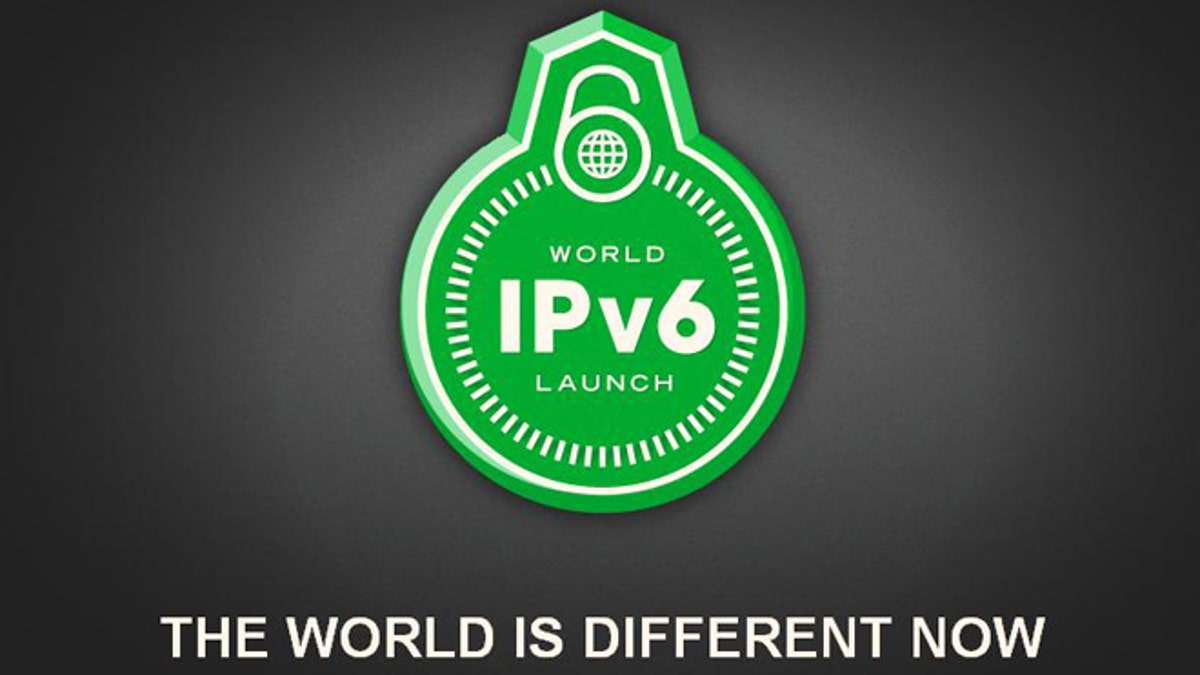
June 6, 2012: A screenshot of the homepage for World IPV6 Day, the day that major Internet service providers, home networking equipment manufacturers, and web companies around the world are coming together to permanently switch network gear to a new addressing system. (WorldIPV6Day.com)
Did you notice anything odd with your Internet connection today? Probably not, but the Internet started changing in a big way under the hood, with websites and Internet service providers turning on a new technology to transmit data.
The Internet's been running on a system that was originally developed 35 years ago as part of an experimental project called ARPAnet in the U.S. Defense Department. That's when researchers created something called Internet Protocol version 4, or IPv4. [4 Decades of Clever Technology]
A key component of the system was how many addresses it created, since in theory, every gadget on the Internet needs its own unique number, called an IP address, so data can find it. IPv4 created about 4.3 billion addresses — overkill for an experiment, but not enough for a planet. IP addresses started running out about a year ago in some parts of the world.
There have been many tricks to stretch the number of IP addresses. For example, every Internet-connected device in your home probably shares the IP address of your modem, similar to how telephones in an office have extensions to share the one main number.
With IPv6, everything can have a unique number, making it easier and quicker for data to find its way around the Internet. In comparison to IPv4's 4.3 billion IP addresses, IPv6 can assign about 340 trillion trillion trillion (that's not a typo). Or to be exact:
340,282,366,920,938,463,463,374,607,431,768,211,456 IP addresses.
The addresses won't run out, and that means all kinds of gadgets most people hadn't even thought of can get online. Appliances, even individual lights, can more easily join the "smart grid" to turn on or off based on the cost of electricity at that moment, for example. [What is Home Automation?]
IPv6 has other benefits. Encryption security is built in, instead of being added on as it currently is. Of course, giving every gadget a unique address means it would be easier to track the user of the gadget online. IPv6 includes tech to hide the addresses from snoops, however.
IPv6 also allows "quality of service." Packets of video data, for example, can specify that they need special handling to arrive without delay — so Netflix and Hulu videos won't be choppy. [2 Million People Pay for Hulu, and Put Up with Ads]
You probably won't be affected by the transition. But if you are experiencing any weirdness, click on Yahoo's IPv6 Test pageto see if that's the problem.
In fact, your computer or mobile may not even be using IPv6 at all. It's slowly filtering in alongside the IPv4 system, and it will be a long time before it fully takes over. But since flipping on the switch today, engineers have guaranteed that the Internet can get much, much bigger.
- 8 Worst All-In-One Tech Gadgets
- 3 Ways to Protect Your Online Privacy Now
- For Internet Video, Connected TVs Trump PCs
Copyright 2012 TechNewsDaily, a TechMediaNetwork company. All rights reserved. This material may not be published, broadcast, rewritten or redistributed.
